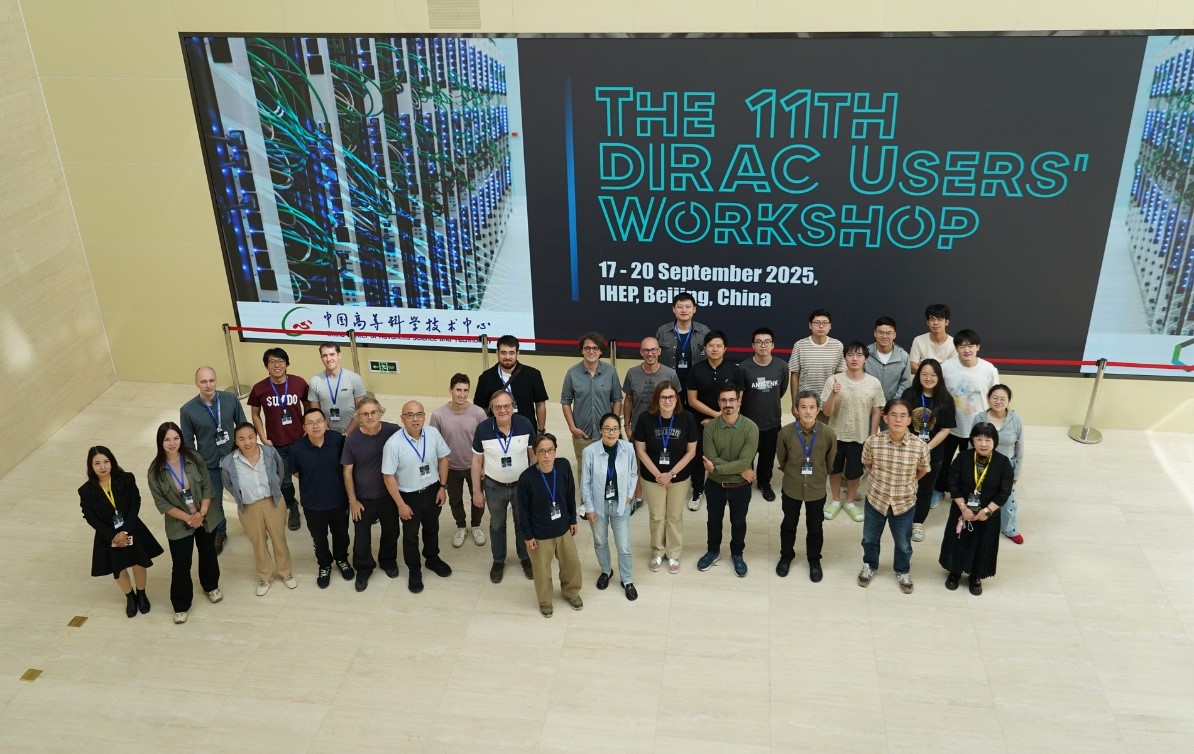The 11th DIRAC Users’ Workshop Successfully Hold in IHEP
From September 17 to 20, the "11th DIRAC Users’ Workshop" was successfully held at Institute of High Energy Physics (IHEP) of the Chinese Academy of Sciences. It is the first time the DIRAC workshop was hosted in China. The event brought together approximately 50 participants onsite (including around 16 international experts), about 15 experts are joining the meeting online. Attendees included leading specialists in distributed computing, core DIRAC software developers from CERN, as well as experts and scholars from eight major high-energy physics experiments and organizations such as LHCb, JUNO, Belle II, CEPC, ILC, CTA, NICA and Gridpp.
DIRAC is a distributed computing platform designed for high-energy physics experiments. By integrating and managing diverse resources such as grid computing, cloud computing, high-performance computing (HPC) clusters, as well as various storage and data catalog resources, DIRAC enables users to utilize these resources in an optimized, transparent, and reliable manner.
The workshop focused on in-depth discussions around the future technological development and application of DIRAC, a public distributed computing framework for high-energy physics experiments. Its aim was to strengthen collaboration among international experiments in the field of distributed computing, optimize resource sharing, and enhance data processing capabilities and efficiency. Presentations primarily covered two key themes: the latest advancements and future directions of DIRAC, and progress updates and exchanges on distributed computing systems across various experiments. Throughout the meeting, productive dialogues took place between distributed computing system managers of the experiments and DIRAC developers, addressing specific needs and challenges, and proposing solutions and future development strategies.
By fostering technological innovation and collaboration, the workshop significantly advanced the development of DIRAC-based distributed computing technologies and global development of distributed computing technology, and Accelerate the pace of physics results from experiments.
